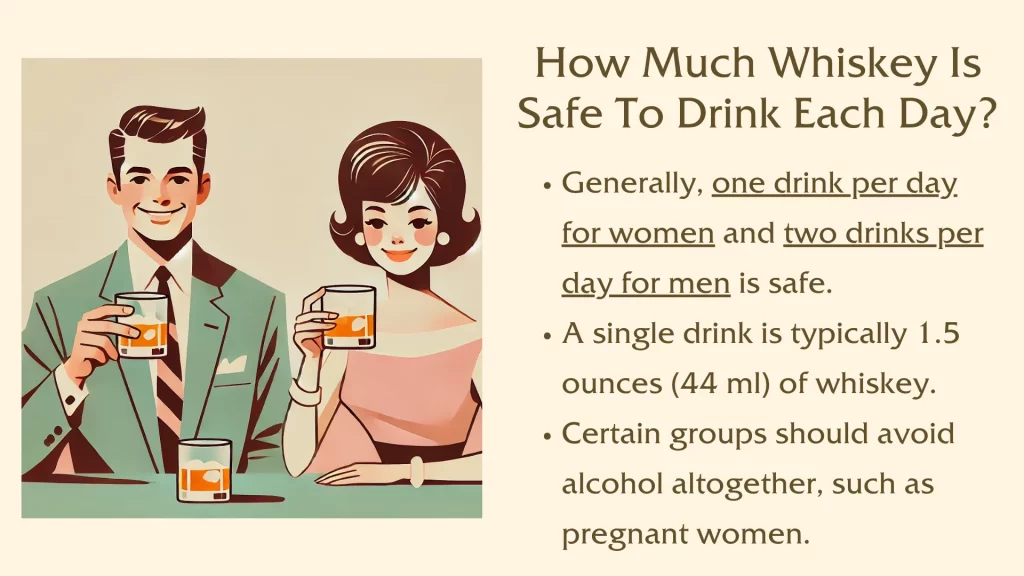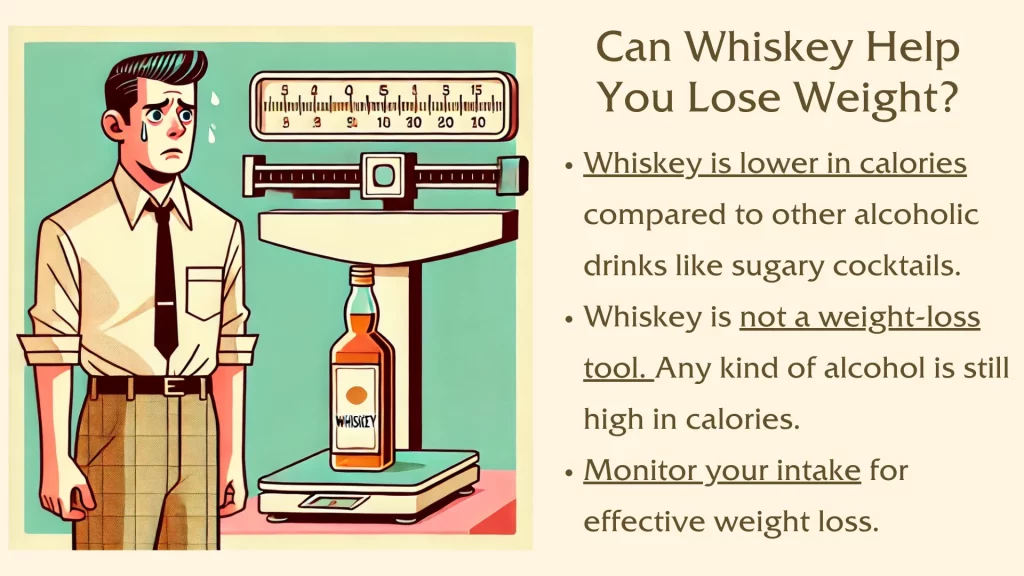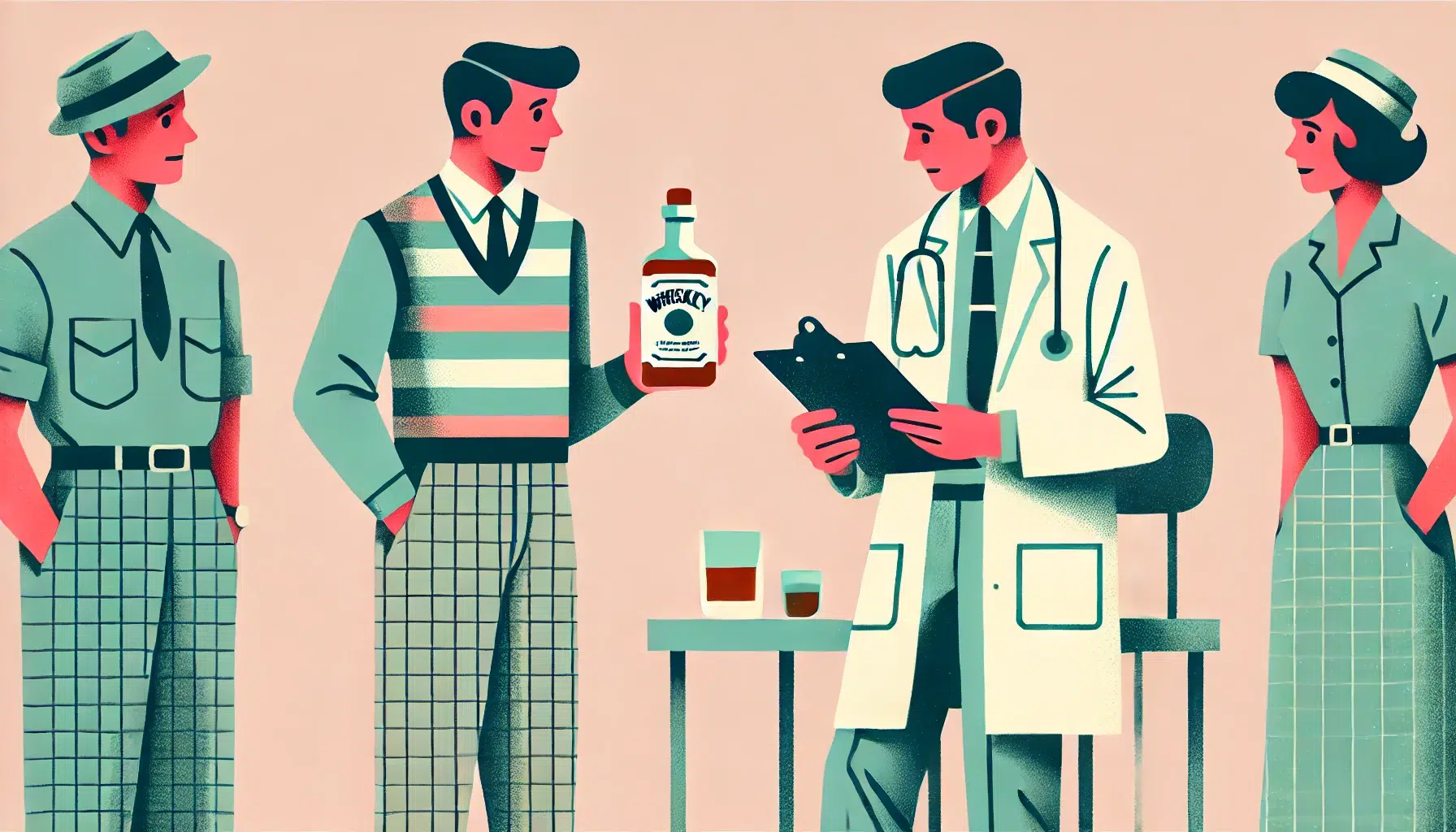Whiskey has been enjoyed for centuries as a drink of choice for social gatherings and personal indulgence. But is does it have any health benefits? While researchers are still investigating the effects of whiskey on the human body, early studies suggest that moderate consumption might offer certain health benefits. However, like any other alcoholic drink, excessive whiskey drinking can lead to health problems such as liver damage.
Let’s dive into the potential health benefits of careful whiskey consumption, as well as the risks that too many tipples can take.
Does Whiskey Have Health Benefits?
Whiskey is rich in antioxidants, which could help combat oxidative stress and protect cells from damage. These antioxidants, particularly ellagic acid, can play a role in preventing chronic diseases, including certain cancers. Some studies suggest that whiskey may help improve heart health by lowering bad cholesterol (LDL) and increasing good cholesterol (HDL).
Early results are still looking into other potential benefits that could reduce the risk of heart attack and stroke. However, remember that whiskey is still a high-proof alcoholic drink – drinking a lot of it can hurt your liver so you should enjoy it in moderation.
Is Whiskey Good For You In Moderation?
The key to unlocking any potential health benefits of whiskey lies in moderation. Drinking whiskey responsibly may provide some nutritional benefits, including its antioxidants and relatively low-calorie content compared to sugary cocktails and beer.
Individual factors such as your age, weight, and overall health play a significant role in determining how whiskey will affect your health. For most healthy adults, enjoying a single drink occasionally is unlikely to cause harm and may even contribute to stress reduction and improved social bonding.
Are There Any Risks Associated With Drinking Whiskey?
While whiskey offers some benefits, it also comes with risks when consumed in large quantities. Drinking too much whiskey can lead to immediate effects such as a hangover, impaired judgment, and intoxication. Chronic heavy drinking can result in severe health problems, including liver damage, heart disease, and pancreatitis.
How Much Whiskey Is Safe To Drink Each Day?

The question of how much whiskey is safe to drink is tricky as it depends on individual factors, but general guidelines suggest that it’s safe to drink up to one drink per day for women and two drinks per day for men. A single drink is typically defined as 1.5 ounces (44 ml) of whiskey.
However, certain groups should avoid alcohol altogether, including pregnant women, individuals with a history of alcohol abuse, and those with specific health conditions. If you have any questions about how much whiskey is safe for you to drink, please consult your doctor.
What Kind Of Whiskey Is The Healthiest?
Not all whiskeys are created equal. The healthiest options are those made with minimal additives and natural ingredients such as barley, rye, and corn. Avoid whiskeys with caramel coloring or excessive added sugars, as these can increase the risk of chronic diseases like cancer. Single malt whiskeys or those labeled as craft or artisanal often prioritize purity and quality, making them a better choice for health-conscious consumers.
Should Pregnant Women Drink Whiskey?
No, pregnant women should not drink whiskey – in fact, they should avoid all forms of alcohol if possible. Ethanol, the active ingredient in alcoholic beverages, can cause serious harm to an unborn child, including birth defects and developmental issues. Health experts strongly recommend abstaining from alcohol throughout pregnancy to ensure the baby’s safety and well-being.
What Are The Side Effects Of Drinking Too Much Whiskey?
Overindulging in whiskey can lead to immediate and long-term health consequences. Short-term effects include:
- Dehydration
- Nausea
- Impaired motor skills
Chronic heavy consumption can cause serious health problems such as liver damage, heart disease, and addiction. Heavy whiskey use can also cause mood and behavior changes, such as irritability, aggression, and anxiety.
What Are The Long-Term Effects Of Drinking Whiskey Regularly?
There is no definitive answer to this question, as the effects of whiskey drinking will vary from person to person. Most of the time, drinking whiskey in moderation is not likely to hurt you in the long run. But drinking too much whiskey can cause health problems like damage to the liver, heart disease, and pancreatitis.
Even in moderation, whiskey should not be viewed as a health elixir. A balanced diet and healthy lifestyle are far more effective in promoting long-term well-being.
Is It Harmful To Mix Whiskey With Other Drinks?
There is no harm in mixing whiskey with other drinks. In fact, many people enjoy mixing whiskey with other drinks so because it can create interesting flavor combinations. However, it is important to remember that whiskey is a strong spirit and should be enjoyed in moderation – monitor the amount you mix in so you don’t overindulge.
Additionally, sugary mixers can significantly increase your whiskey mix’s calorie content, which may negate some of the health benefits you could get from whiskey. Opting for low-calorie mixers like soda water or drinking whiskey in its pure form can be a healthier choice.
Can Whiskey Help You Lose Weight?

There is limited scientific evidence to support the idea that whiskey can help you lose weight. Research shows that moderate alcohol use may be linked to a lower risk of becoming overweight or obese, but it’s not a weight-loss tool in itself.
It’s lower in calories compared to other alcoholic drinks, but at the end of the day, it’s still alcohol – and alcohol is high in calories. To achieve effective weight loss, calorie intake from all sources, including alcohol, should be monitored carefully.
How Does Whiskey Compare To Other Alcoholic Drinks When It Comes To Health Benefits?
When compared to other alcoholic beverages, whiskey holds its own in terms of health benefits. Its high antioxidant content and relatively low calorie count make it an attractive option for those seeking a healthier drink. However, other beverages like red wine also offer health benefits due to the polyphenol in them – a compound that can boost heart health and immunity.
Ultimately, the choice comes down to personal preference and moderation.
Conclusion
Is drinking whiskey good for you? The answer depends on how much and how often you consume it. Whiskey offers potential health benefits, including antioxidants, improved heart health, and a relatively low calorie count, but these advantages apply only when consumed in moderation. Heavy whiskey drinking, on the other hand, can lead to severe health risks, including liver damage, addiction, and chronic diseases.
Enjoy whiskey responsibly and stick to recommended daily limits. For those with health concerns or specific risks, consulting a healthcare provider is essential. Like most indulgences, whiskey is best savored as part of a balanced lifestyle.





